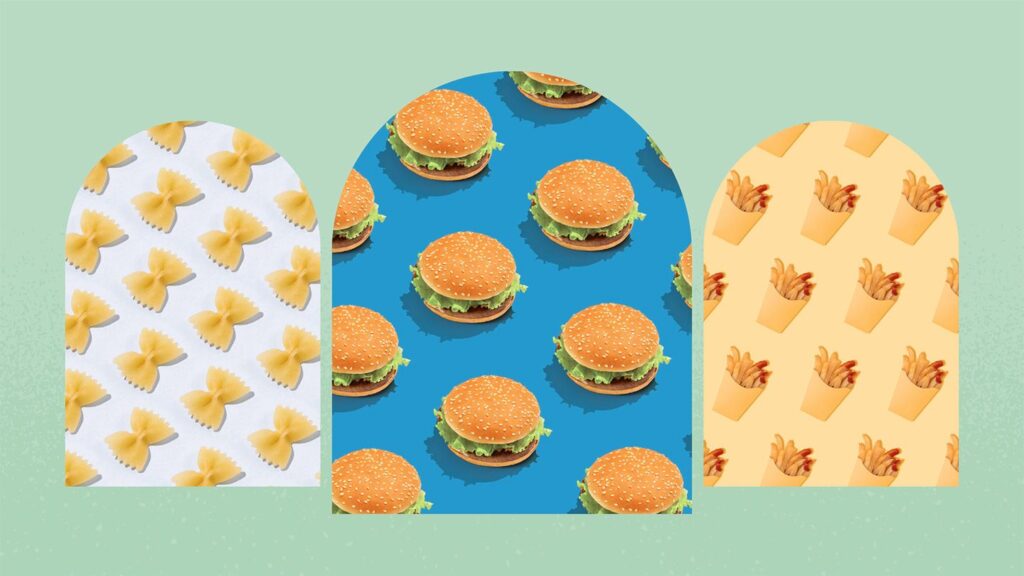“Foods that may cause more oxidative stress or stress on the immune system may also be worse for your eyes,” says Nimesh A. Patel, MD, director of pediatric retina at Massachusetts Eye and Ear and assistant professor of ophthalmology at Harvard Medical School in Boston. (Oxidative stress occurs when there’s an imbalance of free radicals, which are harmful molecules that come from pollution and metabolism, and the antioxidants that neutralize them.) These include foods high in saturated and trans fats as well as refined carbohydrates.
Here are three types of foods to avoid if you have geographic atrophy.
1. Refined Carbohydrates
“High-glycemic-index foods are associated with chronic inflammation as well as damage to small blood vessels and ocular tissues,” Dr. Patel explains, which are key factors that contribute to GA progression.
- White bread
- White pasta
- Pastries
- Sugary breakfast cereals
Better choices include whole grains like rolled or steel-cut oats, quinoa, bulgur, buckwheat groats or kasha, wheat berries, and barley.
2. Red and Processed Meat
Red and processed meat (think burgers and deli meats) are often loaded with saturated fat, nitrates (naturally occurring compounds made of nitrogen and oxygen), and other substances that fuel inflammation and oxidative stress — two key contributors to geographic atrophy progression.
“Over time, that combination weakens the retina’s defenses and encourages GA to move forward,” says Bess Berger, RDN, a registered dietitian nutritionist and the founder of Nutrition by Bess, a private nutrition practice in Teaneck, New Jersey.
If you’re interested in including more fish in your diet, one way to start is to look for some easy recipes that sound appealing to you. You can also look for ways to incorporate familiar ingredients like canned tuna into your meals. When selecting fish, be sure to make sustainable choices by checking Seafood Watch.
3. Foods With Trans Fats
“Trans fats create a perfect storm for GA progression,” Berger says. “They drive oxidative stress and inflammation while also hurting blood vessel health.”
- Stick margarine
- Vegetable shortening
- Frozen dinners
- Processed snacks
- Baked goods
The Takeaway
- The foods you eat have an effect on eye health and may contribute to the progression of geographic atrophy.
- Foods high in refined carbohydrates and trans fats, as well as red meat, are linked to a higher risk of age-related eye damage.
- To maintain the best possible eye health as you age, include brightly colored fruits, dark, leafy vegetables like kale, broccoli, and spinach, and omega-3-packed nuts and fish in your diet. It’s also important to follow any treatment recommendations from your doctor.

